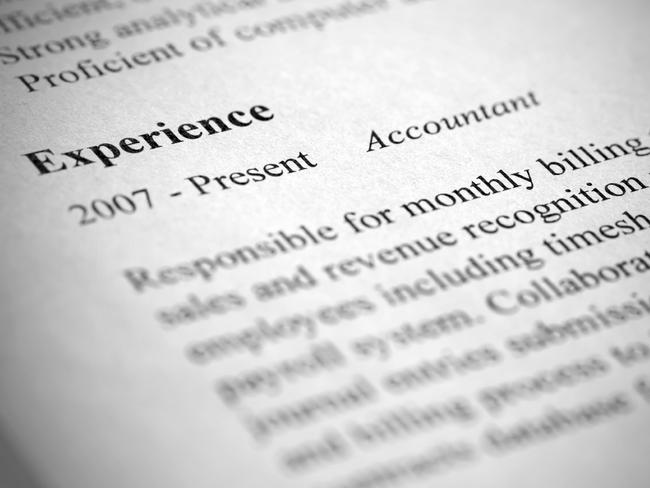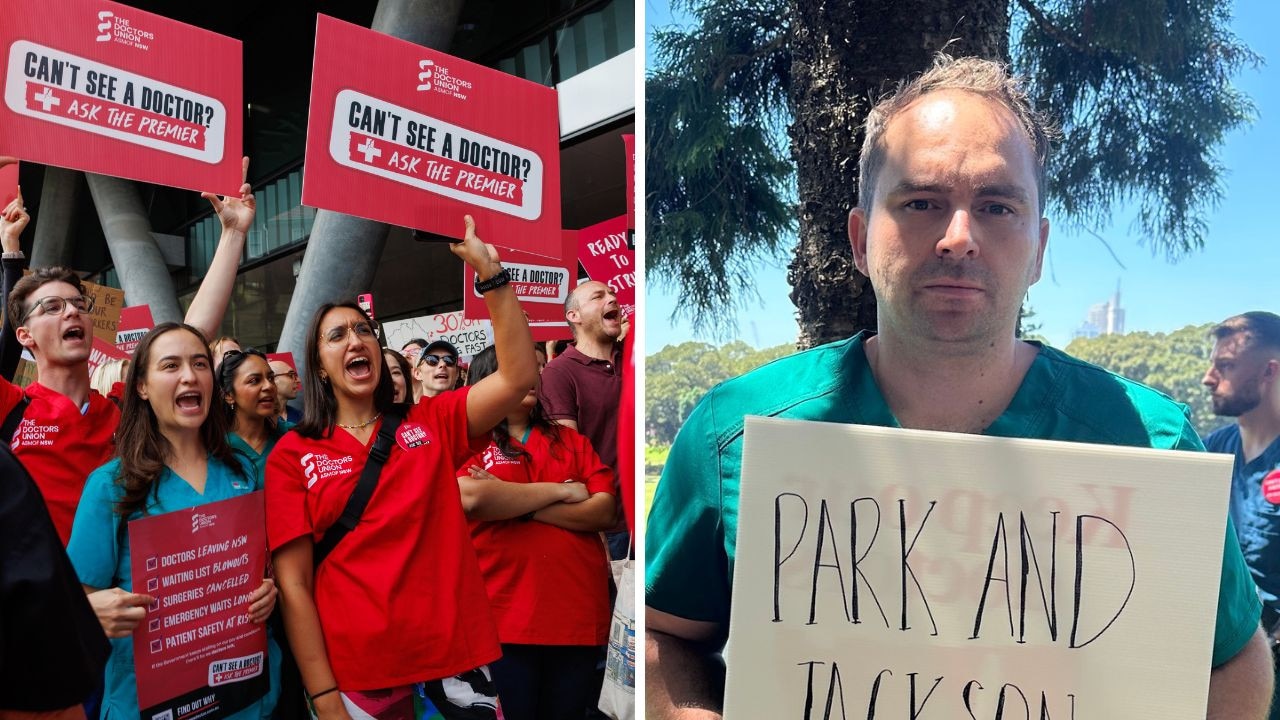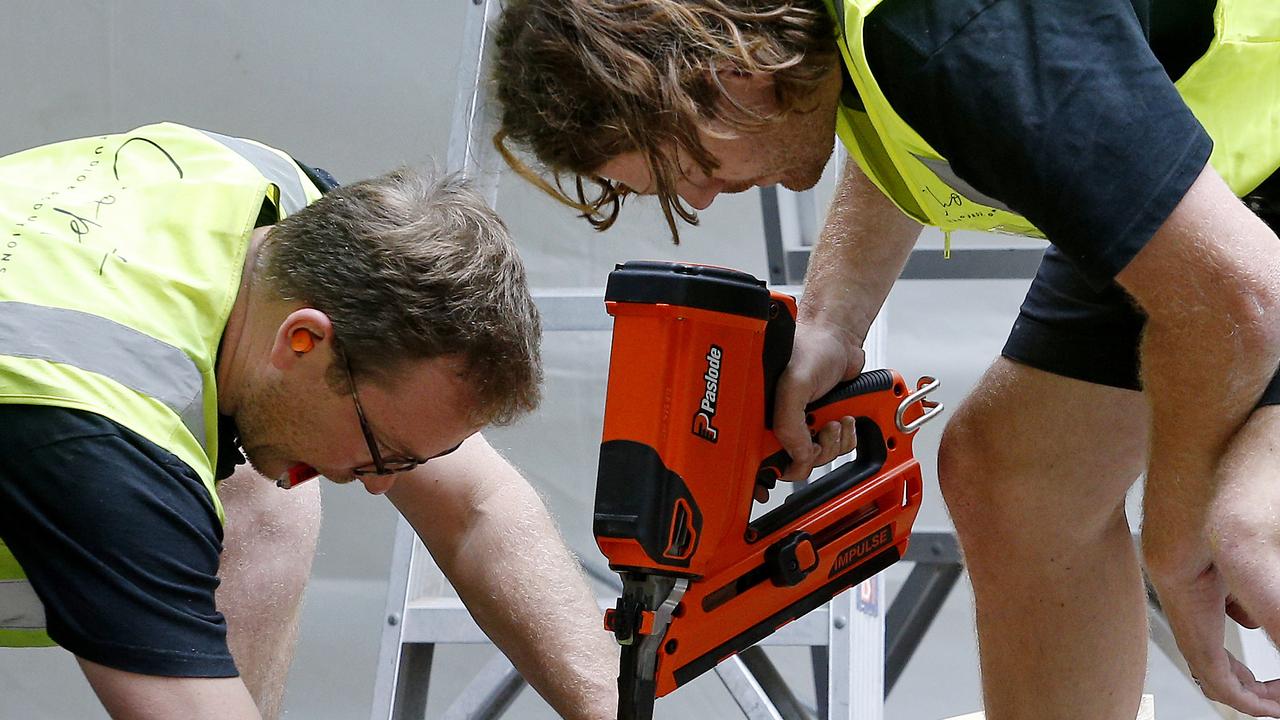How to tackle the awkward but crucial salary expectation question in job interviews
IT’S the most awkward question in any job interview, but it’s also among the most important. “What are your salary expectations?”
Careers
Don't miss out on the headlines from Careers. Followed categories will be added to My News.
IT’S the awkward but crucial question in any job interview: “What are your salary expectations?”
Should you be honest? Should you aim high? Is it OK to avoid the question? We ask three careers experts the best way to navigate the, potentially, million dollar question.
THE BOSS
At the time, Jason Dooris thought the day he doubled his salary by accepting a more senior role was the best day of his life.
As soon as 12 months later, he was looking back at that decision as the worst mistake he’d ever made.
Now as chief executive officer of creative agency Atomic 212, he expects prospective employees to be realistic with their salary expectations.
“One of the worst mistakes people make in that job interview process is shooting too high,” he tells news.com.au.
“It’s not necessarily because it scares the employer off. It may not cost you the job, but it can earn you a whole lot more work and responsibility than you’re cut out for.”
Mr Dooris’s key message to jobseekers is a familiar one: Be careful what you wish for.
“Often employers will have budgets in mind and obviously a position in mind, but if a candidate comes in with higher expectations, and pitching more value that they can contribute to the company, of course you’ll consider that,” he said.
Mr Dooris said interviewees shouldn’t be shy in sharing the value they believe they can contribute to a business they’d like to be employed in. If that’s more than the role perhaps calls for, by all means share that with the boss, but be sure to keep a grounded perspective, he says.
“The salary you want shouldn’t be guided by your personal needs,” he says.
“It’s going to be a guide of what you can contribute to the business and how you can provide that value. If you think you can provide more value than what the role might be offering, by all means share that with the employer.”
As a CEO, Mr Dooris says he’s learned to also be realistic in paying for value.
“If a potential employee promises more value than you might have been expecting, and you negotiate too hard as an employer and promise other things down the track, then you’ll find yourself dealing with a hard internal process trying to achieve a salary increase as
soon as six months down the track,” he says.
“If you remunerate fairly, it’s a much simpler process.”

THE RECRUITER
As a senior regional director at Hays recruitment, Susan Drew is all too familiar with the job interview process, and knows every trick in the book.
While the main thing she tries to drill into candidates is to be upfront and honest, there’s one shifty trick she’s all for using.
“It’s OK to avoid the question,” she assures.
“If you’re asked your salary expectation straight up, it’s more than OK to want to talk about finding the right role, and telling the employer you’re confident that they’d pay the right sort of salary, but that you’d prefer to talk about salary towards the end of the process.
“If you walk in to an interview and the first thing you’re asked is how much you currently get paid, you can say, ‘Rather than talking about what I get paid, I’d like to talk about my skills and experience’.”
Employers turning the question around and asking what kind of money you’re on rather than what kind of money you’d like, is something that often trips up nervous candidates.
The first instinct, for many of us, is to lie. Say you’re on a bit more, thinking this will shape what your next boss is likely to pay you.
According to Ms Drew, we’ve got it all wrong.
“Never, ever lie about it. In any situation, you will come unstuck at any point if you’re trying to convince someone of something that’s not true,” she says.
“Be upfront and honest and armed with research. If you believe you’re being underpaid, tell them, ‘This is what I’m being paid at the moment, but I know from my research this is what others might be getting at this level and this is why I believe I’m worth it’.
“It’s confirming you’re interested in the role, what you can bring to the role, and that you’re willing to negotiate it. That sort of approach demonstrates a lot of attributes of an attractive employee.”
On the theme of honesty, Ms Drew says another big mistake is starting the process accepting what the role is going to pay, and then when it comes to the later stages, start wanting more. Potentially wasting a prospective employer’s time is not a great start.

THE CAREERS COUNSELLOR
Faculty career consultant for the University of Wollongong’s school of business, Taryn McDonnell, is all about the three Rs: Research, research research.
She tells her students the salary chat is always going to be a tricky part of the interview process, but more so if they’re underprepared.
“There are salary guides available. I would pull up a 2015 salary guide, look at salary and recruiting trends, see what they’re offering and think about what’s realistic. Consider current trends and the labour market, and even ask friends or online discussion groups.”
It’s important to keep in mind recruitment is a competitive market, and it works both ways, Ms McDonnell says.
Jobseekers are competing for attractive roles, but businesses and industry want to get the best talent.
“Definitely don’t sell yourself short,” she says.
“If you feel that you have the capability to achieve great things for that organisation, tell them. If you go into a position at, say, $60,000, there’s a chance that the person sitting next to you, doing the exact same job, could be on $10,000 more because they’ve negotiated. The company wanted both of you, and once you’ve figured out they want you, don’t be afraid to make sure they’re paying for what they’re getting.”
But, she says, it’s also important to look beyond that initial figure.
“I recently had a student with an offer and the question they came to me with was, ‘Do you think this is a good offer?’, but they had only looked at the figure.
“As they read on in the contract they realised there were other things over and above that mark.”
Ms McDonnell says contracts often conceal extra value, and it’s easy to be blindsided by the salary.
“Potential bonuses, they could be offering extra training, in graduate positions some even offer things like a masters program, which is potentially an extra $20,000 in value. You’ve got to look carefully at what they’re actually offering.”
Originally published as How to tackle the awkward but crucial salary expectation question in job interviews







